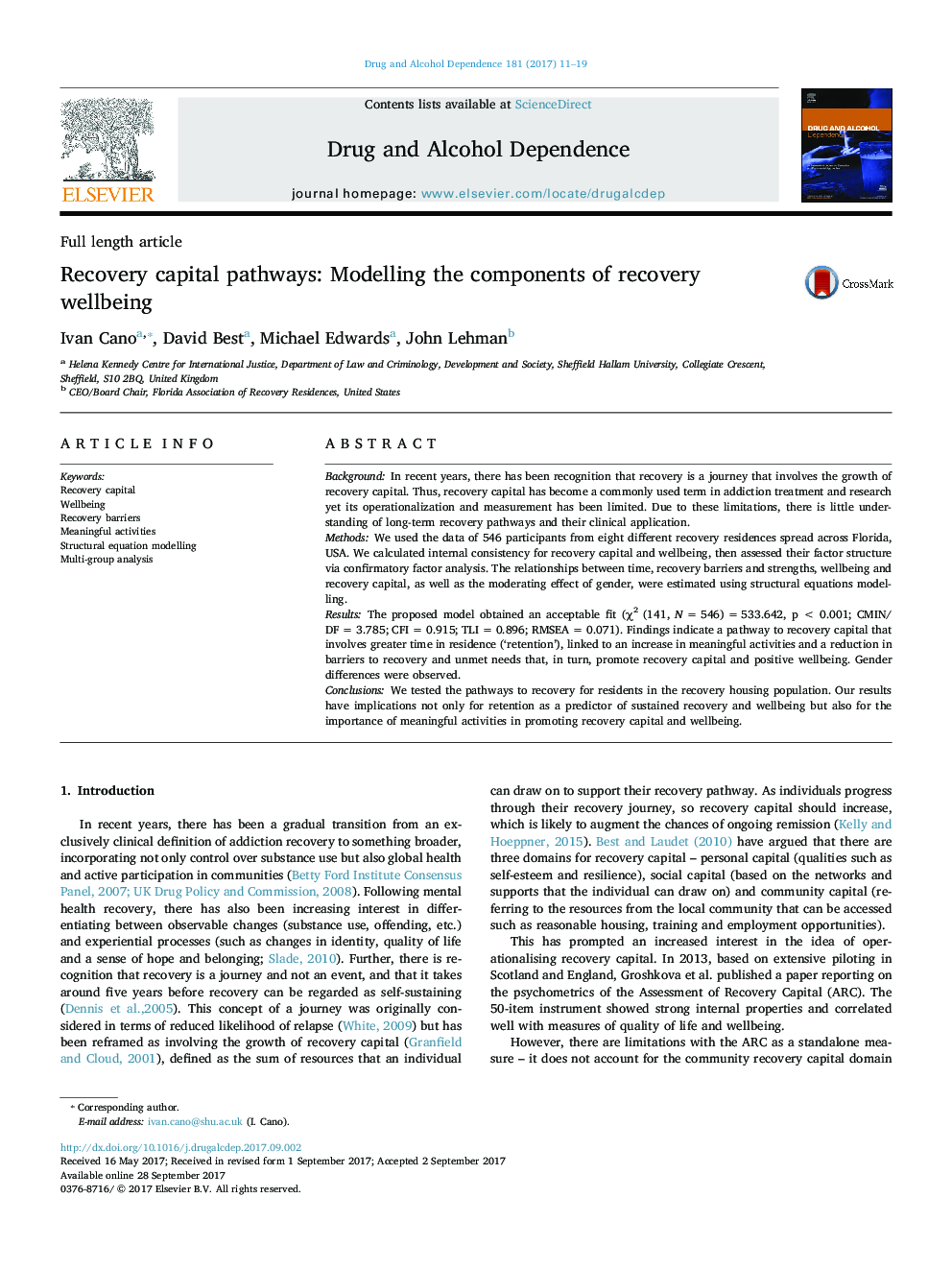| Article ID | Journal | Published Year | Pages | File Type |
|---|---|---|---|---|
| 5119900 | Drug and Alcohol Dependence | 2017 | 9 Pages |
â¢Time in recovery residences increases meaningful activities and decreases barriers.â¢Fewer barriers are associated with fewer unmet needs.â¢More recovery enablers and fewer recovery weaknesses increase recovery capital.â¢Higher recovery capital promotes wellbeing.â¢The existence of generic and gender-specific meaningful activities is suggested.
BackgroundIn recent years, there has been recognition that recovery is a journey that involves the growth of recovery capital. Thus, recovery capital has become a commonly used term in addiction treatment and research yet its operationalization and measurement has been limited. Due to these limitations, there is little understanding of long-term recovery pathways and their clinical application.MethodsWe used the data of 546 participants from eight different recovery residences spread across Florida, USA. We calculated internal consistency for recovery capital and wellbeing, then assessed their factor structure via confirmatory factor analysis. The relationships between time, recovery barriers and strengths, wellbeing and recovery capital, as well as the moderating effect of gender, were estimated using structural equations modelling.ResultsThe proposed model obtained an acceptable fit (Ï2 (141, N = 546) = 533.642, p < 0.001; CMIN/DF = 3.785; CFI = 0.915; TLI = 0.896; RMSEA = 0.071). Findings indicate a pathway to recovery capital that involves greater time in residence ('retention'), linked to an increase in meaningful activities and a reduction in barriers to recovery and unmet needs that, in turn, promote recovery capital and positive wellbeing. Gender differences were observed.ConclusionsWe tested the pathways to recovery for residents in the recovery housing population. Our results have implications not only for retention as a predictor of sustained recovery and wellbeing but also for the importance of meaningful activities in promoting recovery capital and wellbeing.
